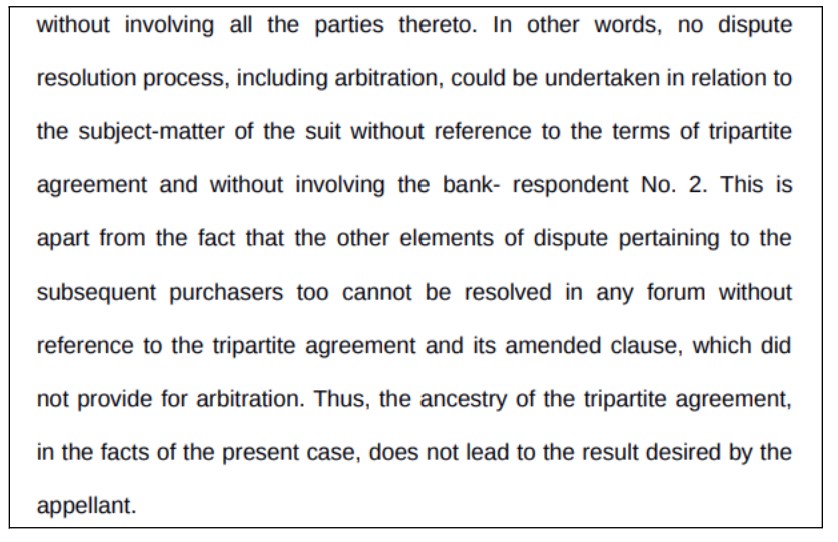In this edition of court judgements review, we look at the Supreme Court’s judgements that a chargesheet filed without sanction of a competent authority cannot be considered an incomplete chargesheet if it was filed well within the prescribed time, that lengthy elaboration of evidences is not required at the stage of granting or rejecting a bail/anticipatory bail, and that mining activity will not be permitted in ESZs even if it is more than one kilometre away from protected forests or national parks.
SC: A chargesheet filed without sanction of a competent authority cannot be considered an incomplete chargesheet if it was filed well within the prescribed time
In Judgebir Singh @ Jasbir Singh @ Jasbir and others vs. National Investigation Agency, the Supreme Court was hearing appeals against an order of the Punjab and Haryana High Court that refused to release persons accused under the Unlawful Activities (Prevention) Act on default bail under Section 167(2) of CrPC. Section 167 of CrPC deals with the procedure to be followed when a person is arrested and detained by the police. The purpose of the section is to ensure that the investigation is completed within the stipulated period. It also allows ‘default bail’ by which an accused person may be released on bail if the investigation is not completed within the said time period.
In this case, the appellants contended that even though the chargesheet was filed within the statutorily prescribed period of 180 days, it was filed without the sanction of a competent authority which made the chargesheet incomplete. This was also as good as saying that no chargesheet was filed by the investigating agency within the statutory time period as prescribed in law, according to the appellants. The Supreme Court bench of CJI DY Chandrachud and Justice JB Pardiwala dismissed the bail plea citing that an accused is not entitled to default bail if an investigation agency files a chargesheet within the said time limit but without sanction for prosecution. The Bench added that whether or not the sanction is required is a question to be asked when taking cognizance of an offence and not during the investigation.
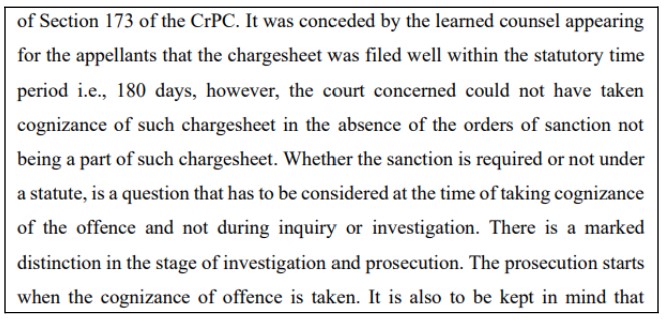
SC: Lengthy elaboration of evidences is not required at the stage of granting or rejecting a bail/anticipatory bail
The case Sumit Subhaschandra Gangwal vs. State of Maharashtra is an appeal to the Apex Court following the rejection of the appellant’s anticipatory bail by the High Court. While rejecting the plea, the High Court also issued an order running into 13 pages. The Supreme Court Bench of Justices B R Gavai, Vikram Nath and Sanjay Karol noted this and stated that detailed elaboration of evidence was to be avoided at the stage of grant/rejection of bail/anticipatory bail. The bench also noted that the Single Judge of the High Court had pronounced the order after a period of one month and one week. The Supreme Court Bench observed that the Court should act promptly in matters pertaining to the liberty of citizens. The inordinate delay in passing an order pertaining to the liberty of a citizen is not in tune with the constitutional mandate, the Bench added.
The Supreme Court had earlier granted the appellant an ad interim protection observing the following:
- The case was a cross-case arising out of a civil dispute.
- There was no apparent material to show that the provisions of the Scheduled Castes and Scheduled Tribes (Prevention of Atrocities) Act, 1989, were invoked.
- There was a delay of six days in lodging the FIR.
However, the latest order made this order absolute on the grounds that the petitioner’s custodial interrogation would not be necessary for the offences alleged.
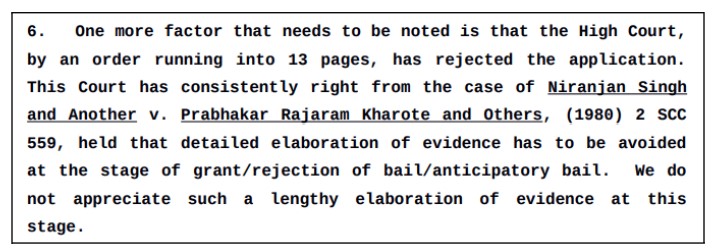
SC: Secretary (Home) does not have the authority to order further investigation into a case being handled by another agency
In the case, Bohatie Devi (Dead) through LR vs. the State of Uttar Pradesh & Ors., the appellant’s son was murdered by unknown persons. An FIR was lodged by the son-in-law of the appellant against Anju and two unknown persons. The investigation was carried out by the Inspector of Police, Baraut, District Baghpat who submitted a chargesheet on 01 March 2015 against two persons of which cognizance was taken by the Magistrate later that month. The investigation was later transferred to the District Crime Branch and a supplementary charge sheet was filed in December 2016 against two accused persons. In 2018, a non-bailable warrant was issued against one of the accused.
The mother of the accused moved an application in January 2019 to the Secretary (Home), State of Uttar Pradesh to transfer the investigation to CBCID on the ground that the accused was called to the Court based on statements of two witnesses who were imprisoned and that their statements cannot be believed. The Secretary (Home) ordered a further investigation by CBCID. This order was challenged in the Allahabad High Court which dismissed the same observing that further investigation was ordered after intimation to the Magistrate and hence, the order passed by the Secretary (Home) directing further investigation was valid.
The decision of the High Court was challenged in the Apex Court. The Supreme Court bench of Justice M R Shah and Justice C T Ravikumar observed that the transfer of the case here was not a matter of further investigation but reinvestigation by another agency. The Supreme Court also said that reinvestigation of an offence by a different investigating agency without prior approval of the Magistrate concerned is not possible. Quashing the High Court’s decision and allowing the appeal, the Supreme Court added that under CrPC, the Police Officer of the concerned Police Station, who is the investigating officer, has to investigate/further investigate the case under the supervision of Superintendent of Police and the Secretary (home) does not come into the picture at all.
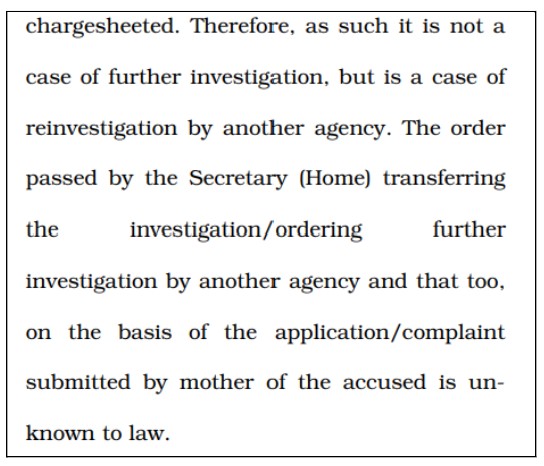
SC: Mining activity will not be permitted in ESZs even if it is more than one kilometre away from protected forests or national parks
In an order dated 28 April 2023, the Supreme Court clarified its order dated 26 April 2023 with respect to Eco-Sensitive Zones and mining in such areas in T N Godavarman Thirumulpad vs. Union of India & Ors. The question raised was if mining activities would be permitted beyond the distance of one kilometre from the boundary of the Protected Area, irrespective of whether such an area falls under the Eco-Sensitive Zone (ESZ) as notified by the Environment Ministry (MoEF&CC).
The Supreme Court Bench comprising of Justices BR Gavai and Vikram Nath clarified that though the Court had prohibited mining activities within one kilometre from boundaries of national parks and wildlife sanctuaries in Goa, it has now made the rule applies across the country. Further, the Bench stated that even if in a particular case, the ESZ is more than one kilometre, if the concerned area where mining is proposed falls within the ESZ, the mining activity will not be permitted, even if it falls in an area which is beyond one kilometre from the boundary of the Protected Area. In short, mining would not be allowed in an ESZ even if it is more than one kilometre away from a Protected Forest to protect the flora and fauna.
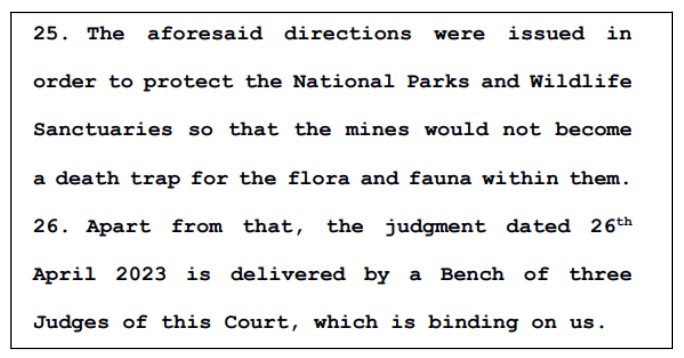
SC: Issues raised in suit went beyond the license agreement because of which the application under Section 8 Arbitration & Conciliation Act was rejected
In Gujarat Composite Limited vs. A Infrastructure Limited & Ors, the appellant had entered into a license agreement with the ‘A Infrastructure Limited,’ for licensing the operation of the manufacturing units of the appellant. The respondent also advanced a sum to the appellant, as financial assistance as per the terms of the license agreement. Following disputes between the parties, the respondent had asked the appellant to extend the license agreement as they could not pay dues to the former. However, the appellant company rejected the request and issued a notice claiming recovery of the possessions of the company on the grounds that the license had expired without any extension. Gujarat Composite Limited also invoked the arbitration clause in the agreement while ‘An Infrastructure’ filed a commercial civil suit before the Commercial Court seeking dues from the former.
Gujarat Composite filed an application under Section 8 of the Arbitration & Conciliation Act in the suit, seeking a reference of the dispute to arbitration. However, the commercial court dismissed the same citing that a partial reference to arbitration was not possible because the cause of action could not be split into separate parts. The consumer court also noted that some issues raised in the suit were not related to the license agreement. Further, it noted that the issue of mortgage was not arbitrable and that the challenge to the Conveyance Deed and relief sought against the bank to not release documents in favour of Gujarat Composite, was only capable of adjudication by the Courts and not by the arbitrator. This decision of the Commercial Court was upheld in the Gujarat High Court. Noting the same, the Supreme Court Bench of Justices Dinesh Maheshwari and Sudhanshu Dhulia dismissed the appeal.
